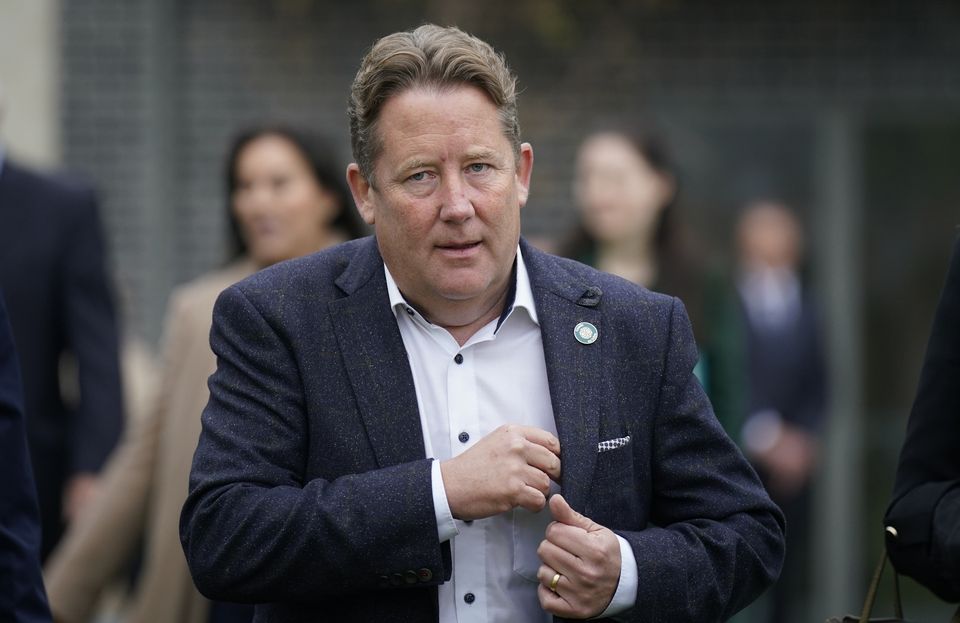Roderic O’Gorman has said “we need to stick to the facts” about migration and homelessness as the Taoiseach was criticised for comments on Ireland’s record high homeless figures.
Taoiseach Simon Harris told The Sunday Times that homelessness numbers “are heavily impacted by the fact we are seeing many people seek protection in our country”.
Mr Harris has been urged to clarify that asylum seekers are not counted in the monthly homeless numbers released by the Department of Housing.
People Before Profit TD Paul Murphy called the Taoiseach’s comments “cynical, untrue and dangerous” and accused him of engaging in a “dog whistle attack” on asylum seekers.
The monthly homeless figures have repeatedly hit record highs, with the figures for July showing that 14,429 people, including 4,401 children, are in emergency accommodation.
These figures do not include people in Direct Provision, people sleeping rough or people who are couch surfing.
Integration Minister Roderic O’Gorman said that people who have applied for asylum in Ireland are not entitled to housing support or the Housing Assistance Payment (HAP), and cannot access homeless accommodation.
Mr O’Gorman said: “I think we just need to be clear on where migration and homelessness interact.
“Somebody seeking international protection has no right to claim housing supports in Ireland, has no right to HAP, has no right to access homelessness accommodation.
“Someone fleeing the war in Ukraine in Ireland has no right to seek housing support, to seek HAP or to seek homelessness accommodation.
“The whole reason that my department has led our response to the people fleeing Ukraine and people fleeing seeking international protection is to ensure that our response to those vulnerable people is undertaken in a way that does not in any way impact the Department of Housing’s ability to implement Housing for All and its ability to deal with immediate homelessness situations.
“And that’s why my department opened the course the last year, at its height, was providing accommodation to over 100,000 people.”
Asked to clarify his comments while on a trip to New York for the UN General Assembly, Mr Harris said it was not to “apportion blame” to vulnerable people, but added that the homeless figures “speak for themselves”.
Mr O’Gorman said that he agreed with Mr Harris that “we shouldn’t be blaming vulnerable people for the housing situation”.
“That is a reality of a process that Ireland and every country that allows international protection acknowledge: where someone gets international protection, where it is said that they are a refugee, that they met the criteria, they are then entitled to remain in Ireland and to access services on the same basis as everybody else.
“I support and I will always defend that process because it is important that people who are fleeing war, fleeing conflict, have that ability to find safety in Ireland or in any other country.”
Housing Minister Darragh O’Brien said he makes ‘no distinction between’ groups of people accessing emergency accommodation (Niall Carson/PA)
Housing minister Darragh O’Brien echoed Mr O’Gorman’s comments on Monday and said he makes “no distinction between” groups of people accessing emergency accommodation.
Mr O’Brien was speaking at the launch of 120 new social homes in the Deansgrange area of Dublin.
He described homelessness as a “complex” area and said the Department is transparent in releasing figures on the backgrounds of people accessing emergency accommodation.
“We have seen in the last number of months – and I think that’s just what the Taoiseach was speaking to as well – in the area of new arrivals as well, in particular with singles.
“It is a factor but as I’ve always said and have been very open about: Anyone who does not have a home, we’ve a moral duty of care to them, to support them in emergency accommodation.”
The minister said there had been an increase in the number of people exiting the direct-provision system into State emergency accommodation.”We will provide that accommodation for them regardless of where someone is, or where they’ve come from as well.
“We as a country are a caring country. We want to make sure that people are looked after and they will be looked after. We make no distinction between one cohort of people and another. I never have and I never will.”
